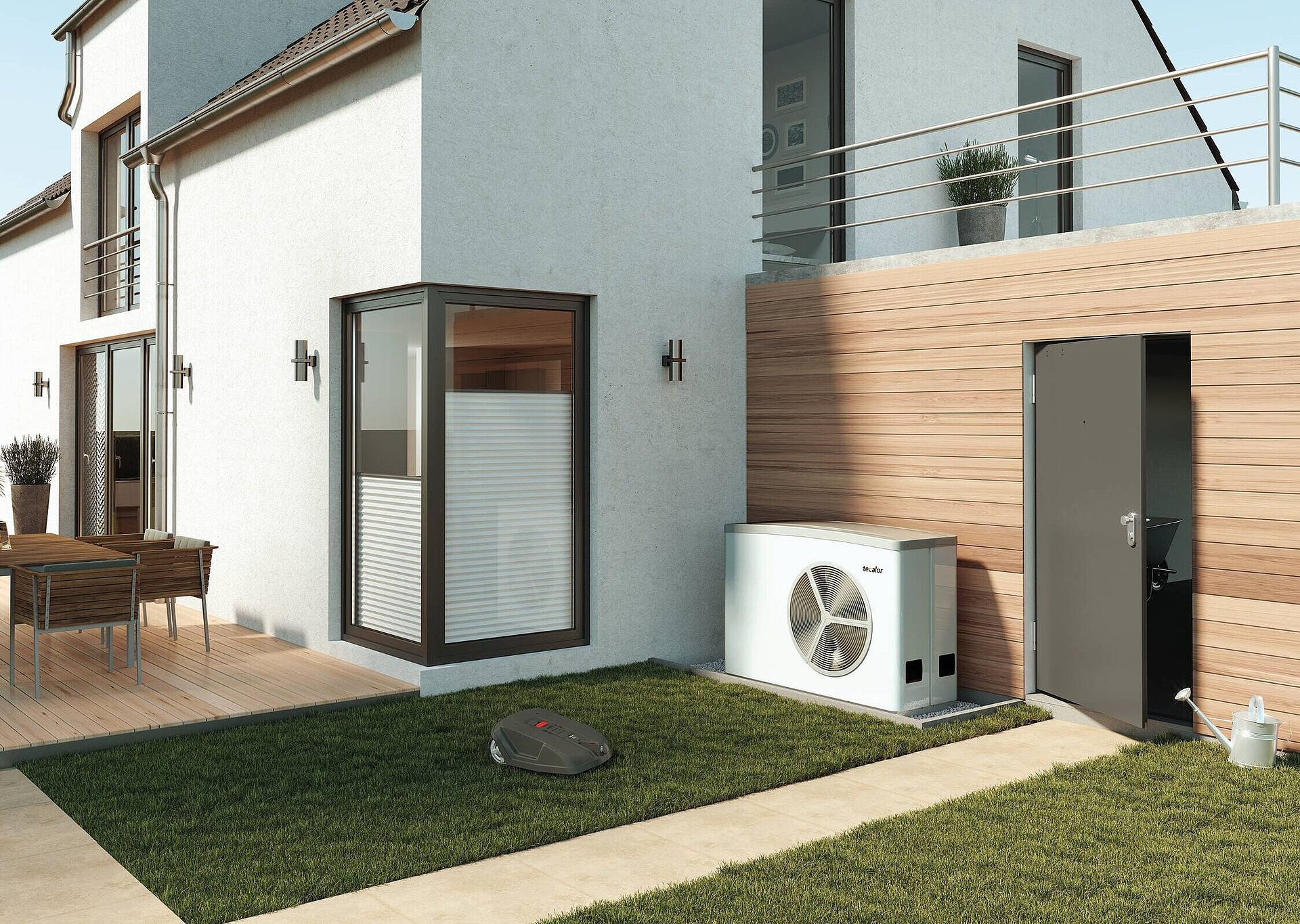As the world shifts towards more sustainable living, homeowners are searching for heating solutions that are both environmentally friendly and cost-effective. Heat pumps have emerged as a key player in the green energy revolution, offering a modern alternative to traditional fossil fuel heating systems.
Why Choose a Heat Pump?
Heat pumps represent the forefront of sustainable heating technology, perfectly aligning with the growing demand for ecological solutions. With increasing legislation and attractive subsidies now available in the UK
Heat pump grants– MoneySavingExpert
A heat pump, especially when paired with a high-performance, well-insulated building envelope, drastically reduces energy consumption and carbon emissions. Systems like the ÖvoNatur Therm from WeberHaus exemplify how modern homes can be heated efficiently.
Unlike conventional boilers, heat pumps are powered entirely by electricity, which can come from renewable sources such as your own photovoltaic solar panels. This means your home can stay warm, your water hot, and your conscience clear, all while cutting your dependence on fossil fuels.
How Do Heat Pumps Work?
The science behind heat pumps is both clever and simple, a reverse kitchen. Instead of extracting heat to cool things down, heat pumps draw warmth from the outside air and transfer it into your home. Using a small amount of electricity, these systems capture heat energy and feed it into your central heating and hot water circuits.
Advanced models with integrated ventilation and heat recovery can reclaim up to 90% of heat from exhaust air, maximising efficiency. The key measure of a heat pump’s efficiency is its Coefficient of Performance (COP). For example, a COP of 4 means that for every 1kW of electricity used, the system produces 4kW of heat. Quality heat pumps generally achieve COP values between 3 and 5, making them an outstanding choice for energy-conscious homeowners.
Efficient Heating Even in Cold Weather
One of the features of modern heat pumps is their ability to operate efficiently even at external temperatures around 0°C. Whether you’re in a rural cottage or a modern city home, heat pumps can deliver reliable heating and hot water. By relying solely on electricity and not burning any fossil fuels, heat pumps offer a significant reduction in CO2 emissions.
Flexible Installation and Modern Design
Heat pumps are highly versatile when it comes to installation. They can be fitted indoors, such as in basements or utility rooms, or placed outdoors, depending on space and design preferences. This flexibility makes them suitable for a wide variety of properties and renovation projects.
Air-to-Water Heat Pumps and Underfloor Heating
Pairing an air-to-water heat pump with underfloor heating creates an exceptionally efficient system. The heat pump draws energy from the outdoor air and uses it to warm water, which is then pumped through pipes beneath your floors. This approach allows for lower flow temperatures thanks to the larger surface area, reducing energy use while delivering comfortable, even warmth. It also means you can enjoy open-plan living spaces without bulky radiators, and benefit from cleaner indoor air with less dust circulation.
Air-to-Air Heat Pumps for Fresh, Healthy Homes
Air-to-air heat pumps are another excellent option, especially for those prioritising indoor air quality. These systems combine heating, hot water, and controlled ventilation with heat recovery, all managed through a central unit. The result is fresh, filtered, and well-tempered air throughout your home, supporting a healthy indoor climate. Unlike water-based systems, air-to-air heat pumps distribute warmth silently and draught-free via discreet ceiling or wall vents.
The Four Main Types of Heat Pumps
- Air-to-Air Heat Pump: Utilises ambient air and waste heat from ventilation systems for efficient heating and cooling.
- Air-to-Water Heat Pump: Extracts energy from outdoor air to heat water for radiators or underfloor heating.
- Brine-to-Water (Ground Source) Heat Pump: Harnesses thermal energy stored in the ground for highly efficient performance.
- Water-to-Water Heat Pump: Uses energy from a water reservoir, such as a well or lake, to heat your home.
Conclusion: Heat Pumps Are the Future of Home Heating
By adopting heat pump technology, you’re not only investing in lower energy bills and increased comfort, but you’re also supporting the transition to a low-carbon future. With flexible installation options, excellent efficiency, and the ability to pair with renewable energy sources, heat pumps offer a truly sustainable solution for modern living. Whether retrofitting an older property or building new, now is the perfect time to make the switch to greener, cleaner heating.

